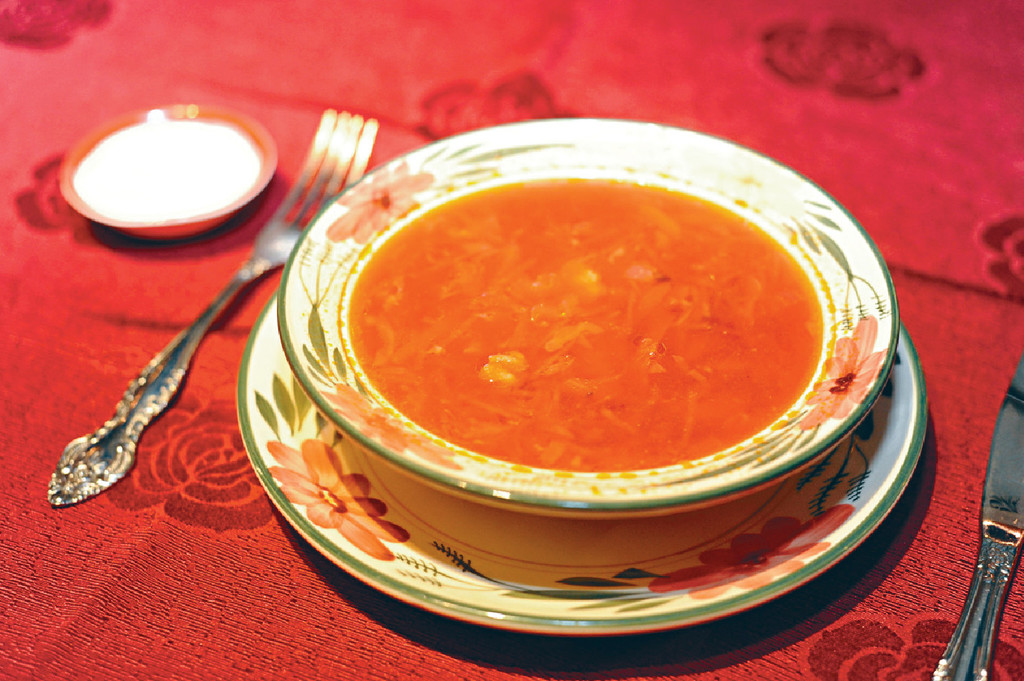finger food
2019/03/19 04:12:27 網誌分類: 生活
All have gone bust except the Queen’s Café. But my friends told me it’s nowhere near the same as the original Russian restaurants in Hong Kong. The expression “nowhere near” means “not at all” or “not in any way”. The set course lunches and dinners at the old Russian restaurants were delicious. A set course meal means a meal that includes several dishes, such as soup, entrée (main course), and dessert for a fixed price. As a young boy in school I couldn’t afford to eat out (eat in restaurants) all the time but my friends and I would eat out once in a while.
I loved eating the set course meals at the Russian restaurants. They included borscht soup, zakuska, and an entrée. I enjoyed zakuska the most. Zakuska are Russian-style hors d’oeuvres. The French word hors d’oeuvre means small-sized appetizers eaten at the start of a meal. Hors d’oeuvres are sometimes called finger food, which means small appetizers eaten with your hands instead of a fork and knife. I also loved eating pirozhki (or piroshki), which is a Russian fried or baked bun with meat and vegetables inside. When I was a young boy, I used to buy them at the Chantecler bakery near my home. I would love to eat pirozhki again but I don’t think they are available in Hong Kong anymore. It’s too bad all the Russian restaurants have gone bust.
***
香港許多餐廳,開店只有幾個月就已垮掉(go bust)。我住在中環時,見過半山扶手電梯沿路許多餐廳都倒閉(go bust)了。習語go bust意即破產或因財務困難而結業。若一間餐廳或生意goes bust,意即它因財困而倒閉。我在香港長大時,有幾間很知名的俄羅斯餐廳,賣的都是地道的(authentic)俄羅斯菜。我還記得其中幾間的名字,最出名的是雄雞餐廳、車厘哥夫、特卡琴科,以及皇后飯店。我曾經很愛吃它們的食物。
它們全都倒閉(gone bust)了,除了皇后飯店;但朋友們告訴我,現在的那間仍遠遠不及(nowhere near)香港最早的那些俄羅斯餐廳。習語nowhere near意即「一點也不」或「完全不像」。舊式俄羅斯餐廳的set course午餐和晚餐真是美味極了。A set course meal即是有幾道菜的定價套餐,例如餐湯、主菜(entrée)和甜品。那時自己還是在學校讀書的小伙子,當然負擔不起常常出外用膳(eat out),但我和我的朋友們仍會偶然一次出外用餐(eat out)。
我很愛吃俄羅斯餐廳的套餐(set course),當中包括羅宋湯、俄式雜錦冷盤(zakuska)及一道主菜(entrée)。我最愛俄式雜錦冷盤(zakuska)。Zakuska是俄式hors d’oeuvres。法語詞彙hors d’oeuvres意即餐前的開胃小吃,hors d’oeuvres有時也稱為finger food,意即不用刀叉、用手便可以拿起吃的餐點。我也愛吃pirozhki(或piroshki),就是以菜和肉做餡料的俄式餡餅。我還是年輕小伙子時,不時會在家附近的「雄雞」餅店買這種餡餅。我很想再吃俄式餡餅(pirozhki),但我不認為可在香港再找到了。俄羅斯餐廳全都關門大吉(gone bust),真令人遺憾。
中譯:七刻
Michael Chugani 褚簡寧

回應 (0)
我要發表

